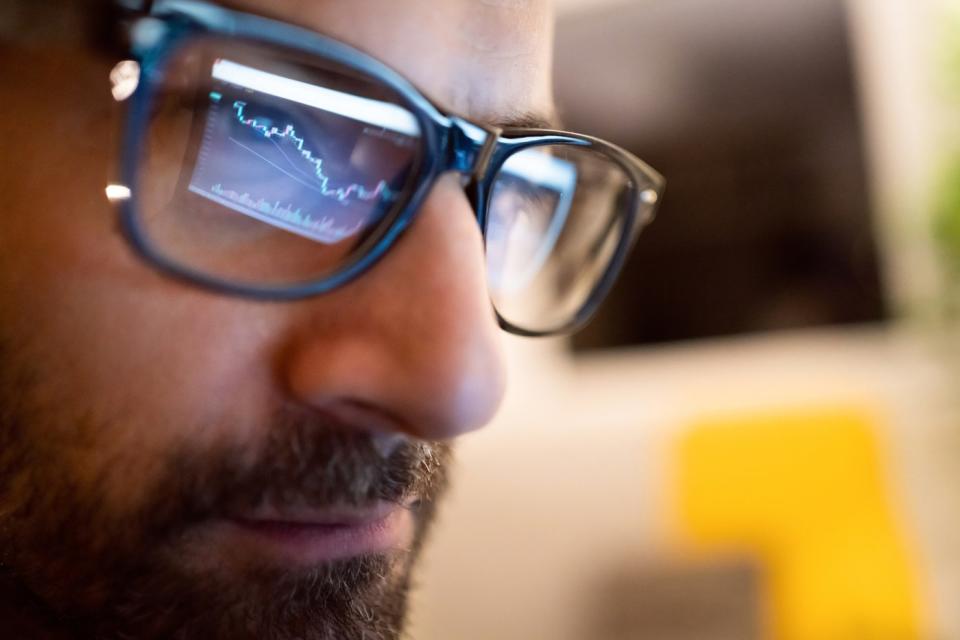While all eyes were turned to the July inflation report, investors may have missed what can be described as the most-important data release of the quarter on Aug. 14. I'm talking about the filing date for institutional investors to report Form 13F with the Securities and Exchange Commission (SEC).
A 13F is a snapshot that details the buying and selling activity of Wall Street's brightest money managers in the most recent quarter. Despite 13Fs offering a snapshot that's up to 45 days old when filed with the SEC, they can still provide important clues as to what stocks, industries, sectors, and trends (cough, artificial intelligence (AI), cough) have been piquing the interest of top-tier asset managers.
Even though investors have been enamored with the prospects for AI and its seemingly limitless ceiling, the hardware kingpin of the AI revolution, semiconductor colossus Nvidia (NASDAQ: NVDA), is a stock that billionaires can't stop selling.
More than a half-dozen billionaires dumped shares of Nvidia for a third straight quarter
Based on the latest round of 13Fs detailing trading activity in the June-ended quarter, we witnessed seven billionaires send shares of Nvidia to the chopping block, including (total shares sold in parenthesis):
Ken Griffin of Citadel Advisors (9,282,018 shares)
David Tepper of Appaloosa (3,730,000 shares)
Stanley Druckenmiller of Duquesne Family Office (1,545,370 shares)
Cliff Asness of AQR Capital Management (1,360,215 shares)
Israel Englander of Millennium Management (676,242 shares)
Steven Cohen of Point72 Asset Management (409,042 shares)
Philippe Laffont of Coatue Management (96,963 shares)
What's particularly noteworthy about this selling is that it marks the third consecutive quarter that more than a half-dozen billionaire asset managers reduced their stakes in Nvidia.
On one hand, a strong case can be made that profit-taking is behind this continued selling. Shares of Nvidia have blasted higher by more than 700% since 2023 began, equating to an increase in market value of $2.7 trillion. No market leader has ever increased in value so quickly before.
But there are a number of logical reasons beyond just profit-taking that may explain this ongoing selling by billionaire investors.
For one, history has proved incredibly unkind to next-big-thing innovations. There hasn't been a game-changing technology for 30 years that's avoided an early stage bubble. Further, investors consistently overestimate how quickly a new technology will be adopted and mature. This all points to an AI bubble-bursting event at some point in the future.
Nvidia should also contend with competitive pressures. Even though its graphics processing units (GPUs) have an inside track to maintaining their compute advantage in AI-accelerated data centers, Nvidia's inability to meet overwhelming demand, coupled with lower price points from competitors, should allow rivals to grab share.
Lastly, Nvidia would need to execute flawlessly for it to sustain its historic increase in value. Recent reports that its next-generation Blackwell platform is delayed by ay least three months due to design flaws point to Nvidia being just as fallible as any other company.
But as billionaires were showing shares of Nvidia to the proverbial door during the second quarter, they were busy scooping up shares of two other hypergrowth stocks.
Hypergrowth stock No. 1 billionaires can't stop buying: Pinterest
The first fast-paced growth stock prominent billionaires were buying as they were shedding shares of Nvidia is social media platform Pinterest (NYSE: PINS). Four billionaires meaningfully added to their respective fund's existing stakes, including (total shares purchased in parenthesis):
Ken Griffin of Citadel Advisors (4,472,384 shares)
Israel Englander of Millennium Management (516,909 shares)
Ray Dalio of Bridgewater Associates (370,502 shares)
Cliff Asness of AQR Capital Management (148,578 shares)
Although there's some near-term concern about ad spending and the likelihood of a U.S. recession taking shape, Pinterest looks to be perfectly positioned to take advantage of multiple long-term catalysts.
To start with, it's an ad-driven social media platform, and the U.S./global economy spend a disproportionate amount of time expanding, relative to contracting. Though recessions are normal and inevitable, they don't stick around very long. This means ad-focused platforms benefit from lengthy periods of economic growth.
Pinterest's steadily growing monthly active user (MAU) count is another selling point. With 522 million MAUs, Pinterest has a large enough audience that businesses will pay a premium to get their message(s) in front of users. Not surprisingly, sales grew 21% in the June-ended quarter from the prior-year period.
But perhaps the most-overlooked yet important advantage Pinterest offers, relative to other social media platforms, is its ability to help merchants target its MAUs.
Most sites rely heavily on data-tracking tools and "likes" to help businesses target users with their message(s). But with app developers giving consumers the choice to turn off data-tracking tools, it's made life difficult for certain social media platforms.
Pinterest's entire operating model is built on the idea of its MAUs freely and willingly sharing the things, places, and services that interest them. This is invaluable information Pinterest can serve up to merchants, and data-tracking tool changes won't impact it.
Hypergrowth stock No. 2 billionaire money managers are buying hand over fist: Intuitive Surgical
The other hypergrowth stock that billionaire investors were actively buying in the second quarter while sending shares of Nvidia to the chopping block is robotic-assisted surgical systems developer Intuitive Surgical (NASDAQ: ISRG). A trio of top-notch billionaires added to their existing stakes, including (total shares purchased in parenthesis):
Israel Englander of Millennium Management (552,230 shares)
Ken Fisher of Fisher Asset Management (125,150 shares)
Steven Cohen of Point72 Asset Management (48,591 shares)
Arguably the biggest lure for investors with Intuitive Surgical is its market share-leading status when it comes to robotic-assisted surgical systems in use in operating rooms. The company closed out June with 9,203 of its systems installed worldwide. Considering the high cost of these systems ($0.5 million to $2.5 million) and the time needed to train surgeons, clients tend to stick with the company over the long run.
Intuitive Surgical's razor-and-blades operating model is another source of its sustained double-digit sales and earnings growth. The company secures long-term clients by selling or leasing its da Vinci surgical systems. However, these are intricate systems to develop and manufacture, so the margins associated with them are mediocre, at best.
Where Intuitive Surgical generates the lion's share of its operating income and cash flow is from growth in instruments sold with each procedure and regular servicing of its systems. These two sales channels offer considerably higher margins and are growing into a larger percentage of Intuitive Surgical's net sales over time.
Don't overlook the highly defensive nature of healthcare stocks, either. Regardless of what happens with the U.S. economy, people still become ill and require medical care. While it's possible some optional surgical treatments could be delayed, as we witnessed during the COVID-19 pandemic, the bulk of Intuitive Surgical's operating cash flow is well-insulated from "hiccups" in the U.S. economy.
However, Intuitive Surgical is also historically pricey. A forward price-to-earnings ratio of 63, coupled with Wall Street's annualized five-year earnings growth forecast of 14%, leaves little room for error and upside.
Should you invest $1,000 in Nvidia right now?
Before you buy stock in Nvidia, consider this:
The Motley Fool Stock Advisor analyst team just identified what they believe are the 10 best stocks for investors to buy now… and Nvidia wasn’t one of them. The 10 stocks that made the cut could produce monster returns in the coming years.
Consider when Nvidia made this list on April 15, 2005... if you invested $1,000 at the time of our recommendation, you’d have $763,374!*
Stock Advisor provides investors with an easy-to-follow blueprint for success, including guidance on building a portfolio, regular updates from analysts, and two new stock picks each month. The Stock Advisor service has more than quadrupled the return of S&P 500 since 2002*.
*Stock Advisor returns as of August 12, 2024
Sean Williams has positions in Pinterest. The Motley Fool has positions in and recommends Intuitive Surgical, Nvidia, and Pinterest. The Motley Fool has a disclosure policy.
Forget Nvidia: Billionaires Are (Still) Selling It and Buying Shares of These 2 Hypergrowth Stocks Hand Over Fist Instead was originally published by The Motley Fool

